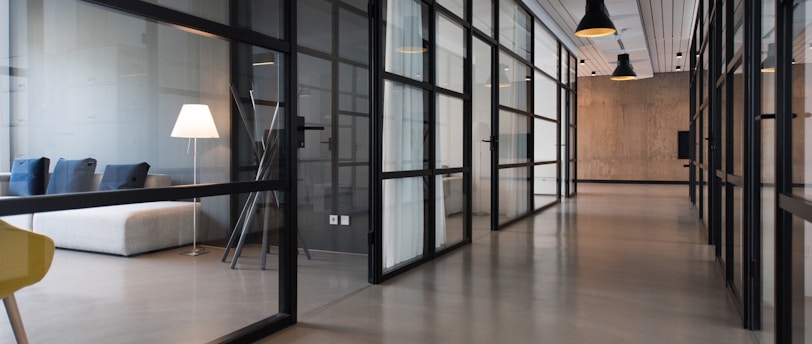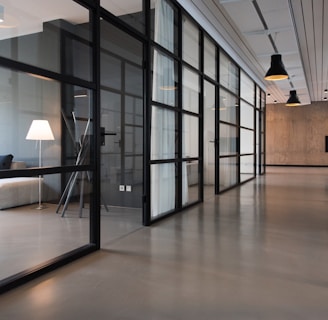Is It Better to Buy or Rent a Property in Hurghada?
The real estate market in Hurghada, a prominent coastal city along the Red Sea, has exhibited significant growth over the past decade. Its enticing mixture of year-round sunny weather, scenic beaches, and a vibrant tourist economy has made it a desirable location for both local and international investors. The rise in tourism has spurred demand for various types of properties, ranging from luxurious beachfront villas to affordable apartments, catering to a diverse clientele.
Is It Better to Buy or Rent a Property in Hurghada?
5/11/20254 min read


Introduction to the Hurghada Real Estate Market
The real estate market in Hurghada, a prominent coastal city along the Red Sea, has exhibited significant growth over the past decade. Its enticing mixture of year-round sunny weather, scenic beaches, and a vibrant tourist economy has made it a desirable location for both local and international investors. The rise in tourism has spurred demand for various types of properties, ranging from luxurious beachfront villas to affordable apartments, catering to a diverse clientele.
As of 2023, the real estate landscape is further enriched by the increasing number of newly developed residential complexes and commercial spaces. These developments are often accompanied by modern amenities, making properties in Hurghada attractive not just for potential homeowners, but also for those seeking rental opportunities. Popular neighborhoods such as El Gouna, Sakkala, and Al Ahyaa have emerged as key players in the market, each offering unique advantages in terms of lifestyle, accessibility, and property value. El Gouna, for example, is known for its upscale villas and exclusive resorts, while Sakkala provides a blend of commercial and residential options right in the heart of the city.
Several factors influence property values in Hurghada. The proximity to the beach, availability of amenities, and the overall economic climate play crucial roles. Additionally, the growth of international interest in Hurghada's real estate market has bolstered prices, making it essential for potential buyers and renters to remain informed about market dynamics. Understanding these aspects is critical for individuals who must decide whether to buy or rent in this flourishing market.
Pros and Cons of Buying Property in Hurghada
Buying property in Hurghada presents a unique combination of advantages and disadvantages that potential investors should consider. One of the primary benefits of purchasing real estate in this vibrant coastal city is the potential for long-term investment appreciation. As tourism continues to thrive in Hurghada, property values have exhibited favorable trends, providing an opportunity for buyers to see a substantial return on their investment over time. For instance, properties near the beach or in popular tourist areas tend to hold their value well, making them appealing for both personal use and rental opportunities.
Another advantage of buying property is the stability it offers. Homeownership provides a sense of permanence and security, allowing owners to personalize their spaces without the restrictions often associated with rental agreements. This level of autonomy is particularly appealing to individuals planning to reside in Hurghada for extended periods. Additionally, owning property can present potential income through rental yields, especially given the burgeoning vacation rental market in this area.
However, buying property in Hurghada does come with its set of challenges. The initial financial outlay can be significant, often requiring a substantial down payment followed by ongoing mortgage payments. Prospective buyers should also be prepared for other costs, such as property taxes, maintenance, and management fees, which can add up over time. Furthermore, the responsibilities associated with homeownership may deter those who prefer the flexibility of renting. To illustrate, a recent case highlighted a buyer who faced unexpected repair costs soon after purchasing a property, which significantly impacted their financial planning.
In summary, while purchasing property in Hurghada can be a sound investment and a stable lifestyle choice, it is essential for potential buyers to weigh these benefits against the financial and managerial responsibilities that come with ownership.
Pros and Cons of Renting Property in Hurghada
Renting property in Hurghada has its distinct advantages and disadvantages, which potential renters should carefully weigh. One of the most notable benefits of renting is the flexibility it offers. Unlike purchasing a home, renting allows individuals to relocate with relative ease, whether for work, lifestyle changes, or personal preferences. This aspect is particularly beneficial in a vibrant tourist city like Hurghada, where housing requirements may fluctuate based on seasonal demand and employment opportunities.
Another positive aspect of renting is the lower upfront costs. Renters typically avoid the hefty initial expenses associated with buying a property, such as down payments, closing costs, and property taxes. Instead, they may only need to cover the first month’s rent and a security deposit, making it an economically appealing option for many. Additionally, renting often entails fewer maintenance responsibilities; landlords are generally responsible for major repairs and upkeep, relieving tenants of these obligations. This factor can lead to more predictable monthly expenses, allowing renters to budget more effectively.
However, renting in Hurghada also presents its drawbacks. A major concern for many renters is the lack of long-term equity building. Unlike homeownership, renting does not contribute to an asset that appreciates over time, meaning tenants will not benefit from property value increases. Furthermore, renters may face potential rent hikes when lease agreements expire, which can strain finances in an already fluctuating rental market. The rental dynamics in Hurghada can vary significantly, with demand rising during peak tourist seasons, potentially leading to increased prices and competition.
Ultimately, individuals considering renting property in Hurghada should carefully assess their financial situation, lifestyle needs, and the local rental market conditions to determine if it aligns with their long-term goals.
Making the Decision: Buying vs. Renting in Hurghada
When considering whether to buy or rent a property in Hurghada, several important factors should be evaluated to make an informed decision. One of the first steps is to assess the duration of your stay in the city. For those planning a short-term visit or seasonal residence, renting may be the most practical choice, as it allows for flexibility and avoids the long-term commitment associated with purchasing property.
Your financial situation is another crucial aspect to analyze. Buying a property in Hurghada typically involves substantial upfront costs, including a down payment, taxes, and maintenance fees. In contrast, renting can offer an immediate solution with comparatively lower initial financial strain, although monthly rental expenses can accumulate over time. It's advisable to create a budget that evaluates the total cost of ownership versus the cost of rental, including potential savings from property value appreciation.
Your lifestyle preferences also play a significant role in this decision. If you value the freedom to relocate easily or prefer a property that is fully furnished and serviced, renting may better suit your needs. However, purchasing a home in Hurghada can provide a sense of stability and the opportunity to customize your living space to align with your personal style.
To assist in comparing the merits of buying versus renting, the following chart summarizes the key points of each option:
Buying: Long-term investment, potential appreciation, customization, stability.
Renting: Flexibility, lower initial costs, minimal maintenance responsibilities, quick relocation.
In essence, the decision to buy or rent property in Hurghada should be made after thoroughly evaluating your personal circumstances, financial readiness, and lifestyle preferences. This careful consideration will ultimately guide you to the most suitable option for your situation.
